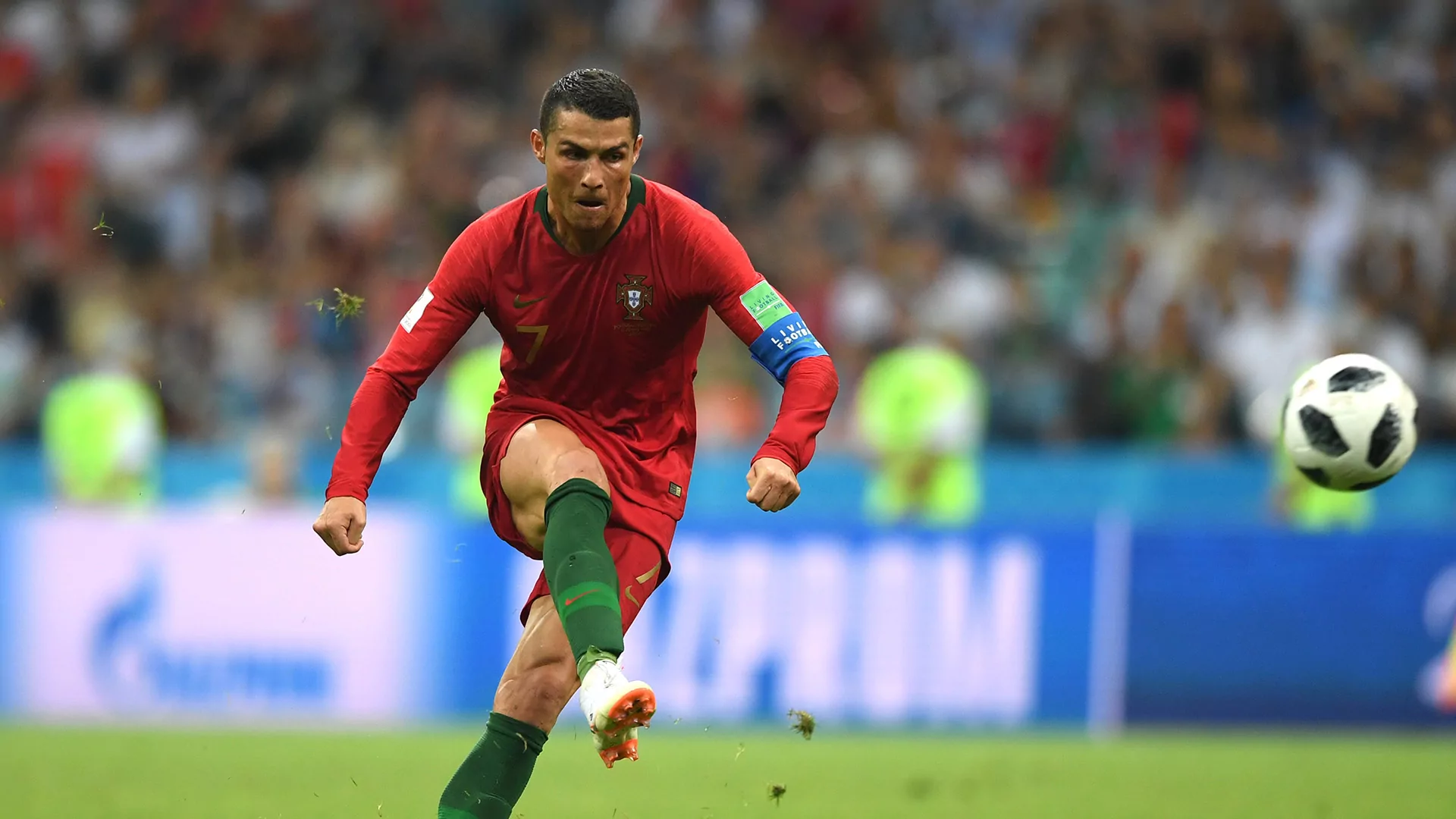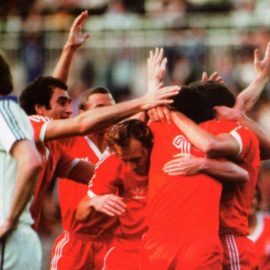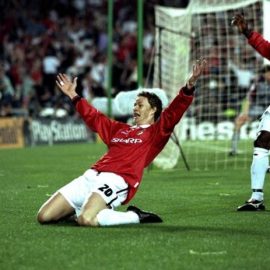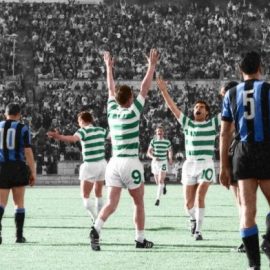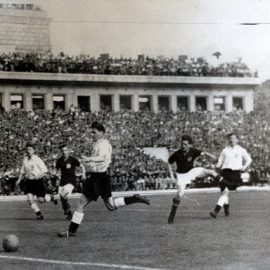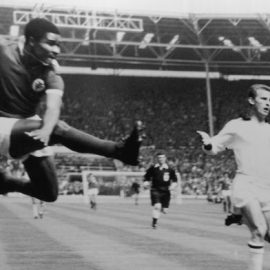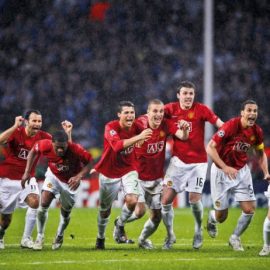The announcement, made back in March, that Michael Owen will be hanging up his boots at the end of this season ultimately came as little surprise to anybody.
The decision was an expected one, but in many respects his retirement at just 33 years of age will be an ignominious conclusion for a player once seemingly destined for the upper echelons of the game; it will be a quiet, almost sheepish exit compared to the grand fanfare he could have once expected.
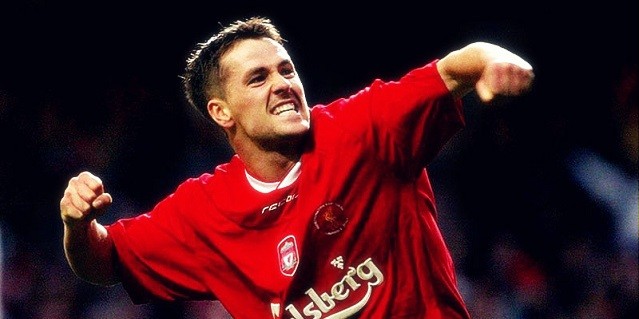
In truth, his career has been on a slow, gradual decline for several years. The scintillating highs of his Liverpool career and the Ballon d’Or triumph in 2001 seem a distant memory; since then, in domestic terms at least, the shine has gradually dimmed, the acclaim continually hushed, the back of the net less frequently threatened.
Following his time at Liverpool, his sudden transfer to Real Madrid appeared to signal a career trajectory that many had anticipated, and it was felt he would cement his reputation as a player of genuine calibre.
Yet it never quite happened; despite an impressive 18 goals in 41 appearances (of which just 15 were starts) in the iconic white strip, he never fully established himself amongst the Galacticos of the time.
Time was against him, and following just a solitary season he returned to England. What came as more of a surprise was his subsequent transfer to Newcastle United, a club then more prominent in the Premiership than they currently are, but it was still an unforeseen move for England’s number one striker, a position he unequivocally held at the time.
The move just never felt like a perfect fit and, despite the occasional moment of promise, it failed to prove a harmonious relationship for either Michael Owen or the club, maligned by a succession of injuries and a series of performances that merely hinted at rather than displayed his ability.
The fact his time there concluded with him leaving on a free contract perhaps provides a revealing illustration of his impact at the club.
From there, Owen elected to continue his series of unanticipated career moves, when, after being linked to Hull City amongst others, he signed on a free transfer with Manchester United, themselves recently beaten to the signature of Karim Benzema (by, ironically, Real Madrid) and who were in need to a striker to supplement the twin threat of Wayne Rooney and Dimitar Berbatov.
Michael Owen always speaks highly of his three years at Old Trafford, but his enjoyment was rarely matched by his influence. Though he scored several notable goals, in particular a late, late winner against their local rivals Manchester City, his appearances were so limited and infrequent it caused people to question his desire to play football.
Openly admitting his passion for his stables in Chester in conjunction with a public vow to never play in a lower league, many were unconvinced by his commitment to the sport, asserting he was far too content wasting his final few playing years sitting idly on the bench or cast to the stands.
At Stoke City, the final club of his career, the circumstances seem the reverse – Michael Owen has publicly expressed his frustration at his lack his opportunities but Tony Pulis has rarely awarded his experienced striker a starting berth.
He has started just seven matches and has only been able to fire his name onto the score-sheet on one occasion. It’s not hard to imagine both Pulis and Owen had very different expectations when he signed last August, but it has been a final throw of the dice that has simply not worked out.
Ultimately then, it’s been a career that promised so much, but in reality has not quite delivered. Such is the underwhelming manner with which he has slowly faded out of the game, it’s becoming increasingly difficult to recall the electric teenager, the relentless bundle of pace, energy and exuberance, who possessed an unnerving ability to terrify defenders and locate the corner of the net.
It would be sad if, in due course, he is not recognised for the player he was, rather than the player he became. His England career similarly fizzled out, especially as for so long he was on course to topple Bobby Charlton’s long-standing record of 49 international goals.
He finished on 40 goals from 89 appearances, undoubtedly an outstanding return, and it is perhaps Michael Owen’s international exploits, rather than any domestic achievements, we will ultimately remember him for.
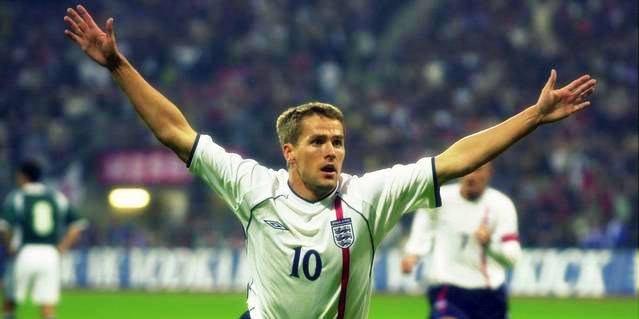
His seminal moment will always be the hat-trick against Germany, in that unbelievable, indescribable, did-that-just happen 5-1 demolition in Munich’s Olympic Stadium in 2001. Following the game, endless comparisons with Geoff Hurst were immediately wheeled out, and Michael Owen’s sheer exuberance seemed set to take England far.
His confidence in an England shirt was absolute at that time, unparalleled amongst his peers, and has rarely been matched since. Unlike several other high-profile names, there was never the slightest concern he would fail to replicate his club form for the national team; rather he thrived on the stage, welcomed the attention and took every chance that came his way with aplomb.
It is likely that if his entire career had to be reduced down to a single moment, those three goals from that notorious night against Germany would be selected to epitomise the player at his peak.
It would be a fitting tribute but my personal preference is to head towards an earlier moment, in the 1998 World Cup, during the bruising second round encounter with Argentina. Interestingly, it is Owen’s most treasured moment of his career too: a goal no one will forget.
It was the fifteenth minute of the match. David Beckham smartly collected possession and twisted his body to address the ball, shaping his foot to curl a twenty yard pass into Michael Owen, himself hovering with intent around the centre circle, just inside the opposition half.
The ball arrived at an awkward height, between shin and knee, but Owen gathered it in with the outside of his boot, a movement that took him away from the midfield and immediately commenced his express route towards the Argentinean goal. Jose Chamot stepped across but too late to halt Michael Owen’s run, the striker brushing past him with some ease.
For a moment, it seemed he was free on goal. Suddenly though, Roberto Ayala loomed into view, who was so troubled by Michael Owen’s pace he had retreated to the sanctuary of the eighteen yard line. His nervous back-pedalling proved a mistake: now, flat-footed, he was faced with stopping the full-speed teenager, a mismatch of devastating proportions, and as expected, a simple body swerve and Owen slalomed past the last defender.
The movement took him wide of the goal, but fortunately the ball was falling nicely into the path of the incoming Paul Scholes, who had burst down the right-hand side of the pitch to supplement his teammate. Michael Owen, who later admitting seeing Scholes out of the corner of his eye, simply ignored him as if he wasn’t there, swinging his body round to strike through the ball, sending it arrowing into the top corner, finding surprising power considering he was moving away from goal.
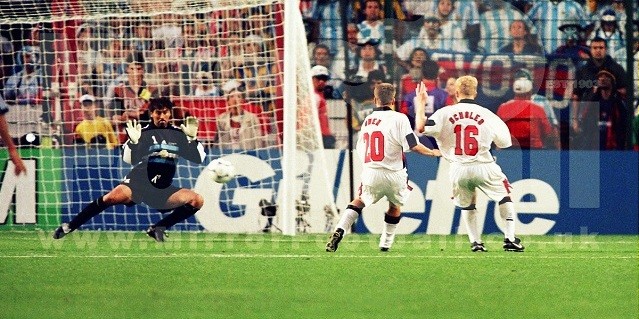
For a moment, silence. Then: eruption. It was a moment to savour. Yet in amongst the wild celebrations nestled a sense of disbelief. It was not a goal born in England. It was a goal a Brazilian might score at his peak, a once-in-a-lifetime strike achieved at the highest level of the game. The fact it was scored by a mere English player, an eighteen year old, took some time to absorb.
That the game ultimately ended in familiar disappointment is irrelevant to the moment itself. It stands alone from the match, securing its place amongst the greatest England goals, certainly of those scored in World Cup finals.
Consider the goal alongside numerous other examples, such as the late individual double for Liverpool in the 2001 FA Cup final against Arsenal, and the contrast with his career now seems even more stark.
The disappointment in that regard has been accepted for some years now. Perhaps it should be noted he has enjoyed considerably more success than many of his peers, and he still can point to an excellent career, but it’s undermined by a nagging feeling he never became the player we originally envisaged.
He never quite reached the heights we thought he might and when Michael Owen hangs up his boots for the last time this weekend, it is likely to be tinged with regret of what might have been.
The author of this article is Jon Wilmot.
Add Sportslens to your Google News Feed!
